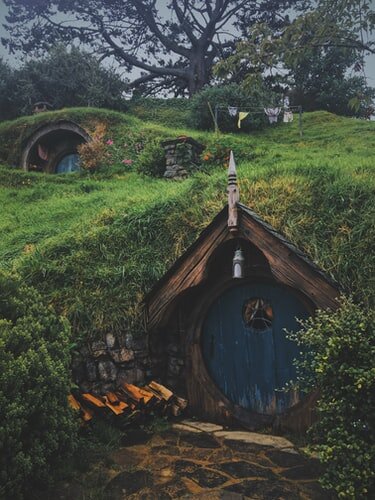5 Worldbuilding Tips for Writers Getting Started
/Worldbuilding is a very important process for creating and telling a story—particularly in science fiction and fantasy—but writing the first one isn't easy or simple.
It's a process that can be daunting, and as a writer who can relate to dealing with creating worlds from scratch, I think this process can be very difficult. If you are looking to develop a new world for your next epic fantasy book or want to build one for your next D&D session, here are five tips to help you get started.
1) Building Your Foundation
Ask yourself a simple question: where is your world set? Is it set in the wild west with gun-toting desperados, and bounty hunters chasing down outlaws, or an unsightly, dangerous place full of demons and the undead?
If you look at the world of Harry Potter, the Hogwarts School of Witchcraft and Wizardry is a boarding school of magic for training witches and wizards, which has interesting places to visit and secrets to uncover.
Intriguing places to explore could make your world feel larger and more expansive. Once you have your answer, think about the people that inhabit it.
2) Understanding the Basics
Think about the basics: how do people get food in your world, and where is the food found? What about transportation and trade, how do those work? What about the need for shelter?
Basic essentials are the core part of any world. Some of these essentials are food sources, water sources, transportation, trade, commerce, and law.
These are obvious—we need food to survive and trade to thrive in real life. Think about the necessities and resources we need to survive in our society, then put those into your own.
3) Diving Deeper into Immersion
Think about how immersive you want your world to be.
You decide whether it should be an expansive fantasy-like realm with plenty of secrets and dangers and wonders, or a post-apocalyptic wasteland with all the trappings of war and survival.
For example, if a country is at war, think about how the war impacts the people of that country, the economy, government, security forces, and even the neighbouring countries. Things like this can impact the degree of immersion and make your world feel more alive.
4) Adding Cultures and Mythology
Do you see your world as being divided into many separate cultures? If so, are there differences between cultures, and are there ever conflicts between cultures and religions?
Are there myths and legends, and if so, do some cultures share similar beliefs or different ones?
Various cultures with similar or different beliefs can enrich your world and make it more interesting.
5) Keep at It
Don’t get discouraged if the world you want to make has already been done before—you can always add your own spin to it. If you have an idea for one, go ahead and make it.
Don't worry about whether it's good or bad. Every writer takes inspiration from every other writer. The one you create will be different because it will be your own. If you still need some support in building one, there's a worldbuilding questionnaire that goes more in depth about it, and it's free. Find out more here.
Ashley Lalonde
Ashley Lalonde is a student at Algonquin College. In her spare time, she enjoys watching Asian dramas, playing video games, and writing her own fanfiction and original stories.








